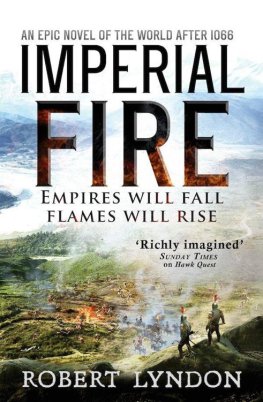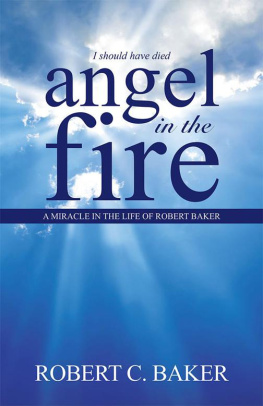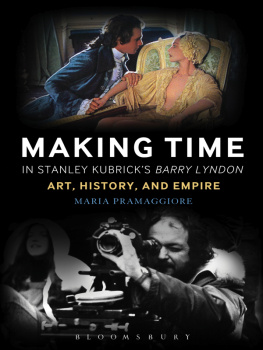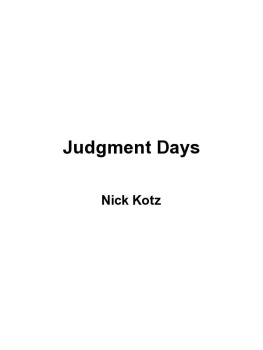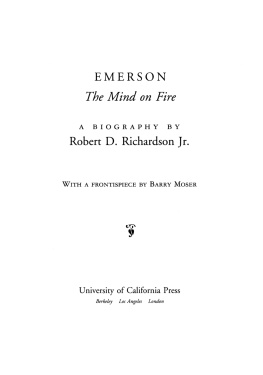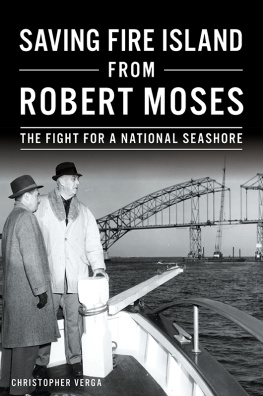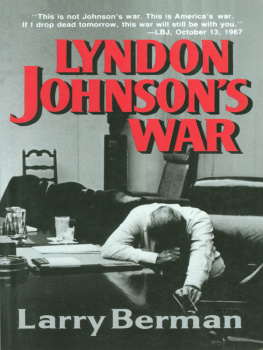Robert Lyndon - Imperial Fire
Here you can read online Robert Lyndon - Imperial Fire full text of the book (entire story) in english for free. Download pdf and epub, get meaning, cover and reviews about this ebook. genre: Adventure. Description of the work, (preface) as well as reviews are available. Best literature library LitArk.com created for fans of good reading and offers a wide selection of genres:
Romance novel
Science fiction
Adventure
Detective
Science
History
Home and family
Prose
Art
Politics
Computer
Non-fiction
Religion
Business
Children
Humor
Choose a favorite category and find really read worthwhile books. Enjoy immersion in the world of imagination, feel the emotions of the characters or learn something new for yourself, make an fascinating discovery.
- Book:Imperial Fire
- Author:
- Genre:
- Rating:4 / 5
- Favourites:Add to favourites
- Your mark:
- 80
- 1
- 2
- 3
- 4
- 5
Imperial Fire: summary, description and annotation
We offer to read an annotation, description, summary or preface (depends on what the author of the book "Imperial Fire" wrote himself). If you haven't found the necessary information about the book — write in the comments, we will try to find it.
Imperial Fire — read online for free the complete book (whole text) full work
Below is the text of the book, divided by pages. System saving the place of the last page read, allows you to conveniently read the book "Imperial Fire" online for free, without having to search again every time where you left off. Put a bookmark, and you can go to the page where you finished reading at any time.
Font size:
Interval:
Bookmark:
Robert Lyndon
Imperial Fire
He who is used to the comforts of life
and, proud and flushed with wine, suffers
little hardship living in the city,
will scarcely believe how I, weary,
have had to make the ocean paths my home.
The night-shadow grew long, it snowed from the north,
frost fettered the earth; hail fell to the ground,
coldest of grain. But now my blood
is stirred that I should make trial
of the mountainous streams, the tossing salt waves;
my hearts longings always urge me
to undertake a journey, to visit the country
of a foreign people far across the sea.
(From The Seafarer in the Exeter Book, England, tenth century)Dyrrachium, 1081
I
Vallons squadron struck the Via Egnatia around noon and pounded on down the paved road towards the west. They rode with fierce determination, bloodshot eyes fixed straight ahead, and at sunset three days later the sixteenth day of October they pulled up their blown horses on a wooded ridge overlooking the Adriatic coast. Vallon leaned forward, squinting into the evening light. The sun had already sunk halfway beneath the sea, leaving a burnished copper fairway fanning back to the port of Dyrrachium. From this distance the city was just a tiny blur, too far away for him to make out the Norman positions or the damage inflicted by their siege weapons.
Shortening focus, Vallon studied the Byzantine encampment about four miles inland, entrenched in a broad rectangle along a meandering river. A pall of dust half a mile long drifted away from the camp.
He glanced at Josselin, one of his centurions. It would appear that were the last scrapings of the imperial barrel.
Josselin nodded. Judging by the size of those earthworks, Id put our strength at more than fifteen thousand.
Vallon conned the terrain, trying to work out where the battle would be fought. On the plain north of the city, he decided.
Only a sliver of sun remained above the horizon and the sea had darkened to deep violet and indigo. He looked back down the line. His Turkmen troops dozed in their saddles. Most of the rest of the squadron had dismounted and sat slumped against the cork oaks, their eyes raw hollows in faces masked with dust. In the last two weeks theyd ridden four hundred miles cross-grain through the Balkans from Bulgarias Danube border, and now they looked more like the survivors of a battle rather than warriors about to go into action.
From the hillside below came the clanking of sheep bells and the sweet riffle of running water. Some of the soldiers were already ferrying skins and barrels back up to their comrades and their thirsty mounts. Vallons three centurions sat their horses, waiting for his orders. He hawked to clear the dust from his throat. It will be hell if we arrive at the camp after dark. Endless questions, ordered from pillar to post. Well be lucky to find a billet before dawn. Well rest here tonight and ride in before sunrise. Dole out whats left of our provisions. He turned to Conrad, his second-in-command, a German from Silesia. Captain, pick ten men, smarten them up and inform headquarters of our arrival. Take the wounded in one of the supply carts. Beg or borrow whatever food you can. Find out whats going on and send a report.
Yes, Count.
Vallons rank wasnt as grand as it sounded. As Kome of a bandon, he commanded a squadron of light and medium cavalry numbering two hundred and ninety-six men by this mornings muster. That was twenty fewer than when hed left Constantinople for the Bulgarian marches seven months ago. The Outlanders they were called mercenaries recruited from all over the Byzantine empire and beyond.
Shadows were pooling among the trees when Conrads party left, the wheels of the wagon wobbling and squeaking on its worn axle, five bandaged casualties lying in its bed. Vallon led his horse towards the spring, limping slightly the effect of a ligament torn in a swordfight nine years earlier. At the age of thirty-nine, he was beginning to count the cost of even the minor wounds and knocks hed suffered in more than twenty years of campaigning.
The spring ran bubbling from the base of an ancient holm oak whose trunk parted from the roots to create a cleft housing a painted statue of the Virgin holding the baby Jesus. Icons, bells and wind chimes hung from the branches. An old man with a face like an empty purse sat beside the spring, his arms crossed tight over his chest. A boy attended him, one hand placed on the patriarchs shoulder.
Vallon nodded at him. God keep you, father.
Your men are stealing my water.
Vallon dropped to his knees beside his horse. It seems to me that theres not one drop less than when we arrived.
The old man rocked back and forth in resentment. His eyes were clouded. The spring is sacred. You should pay for it.
Vallon leaned over the pool, pushed back his hair and scooped a handful of water into his parched mouth. His eyes closed in rapture at the delicious sensation of cool liquid sliding down his throat. All waters sacred to men who thirst. But who to pay? He who created it or the man who guards it? Ill gladly offer my prayers to both.
The old man mumbled to himself.
Vallon wiped his mouth and nodded towards the plain, where fires were beginning to prick the rising tide of darkness. Do you know whats going on down there?
The old man spat. Murder, rape, thievery all the ills that follow in an armys train.
Vallon smiled. Ill tell you what I will pay for. He fished a few coins from his purse and pressed them into the wrinkled palm. Some of my men have the marsh sickness from spending too long on the Danube plain. They cant stomach rough rations. If you could spare a basket of eggs, some milk and fresh bread
The boy took the coins and examined the imperial heads. Theyre good, Grandpa.
The old man squinted sightlessly. Youre not a Greek.
A Frank. Driven by lifes tempests to this far shore.
The man struggled to his feet. Franks, English, Russians, Turks The empires infested with foreign soldiers.
Who are fighting to defend its borders while your native-born lords show off the latest fashions in the Hippodrome.
The boy guided his grandfather away down the hillside. Vallon chewed a supper of raisins and hardtack, drew a blanket around his shoulders and dropped into sleep to the tinkling of bells.
The boy returning woke him. Here are eggs and bread, Lord.
Vallon rubbed his eyes and faced uphill. Captain Josselin, some food for the invalids.
When the officer left, Vallon hunched forward, examining the fires of the imperial army laid out in a grid, the flames of the Normans strung in a burning necklace around the beleaguered city. All he knew about the Norman force was that it was led by Robert Guiscard, the Crafty, Duke of Apulia and Calabria, a general of genius whod ridden into Italy as a mere adventurer and within fifteen years had carved out a dukedom and made the pope his staunch ally.
A torch flickered through the trees, approaching up the road. Hooves clattered. By the light of the wind-torn brand, Vallon made out a rider leading a packhorse. The rider drew closer, a man of massive bulk. Tongues of flame fleeted across a braided vermilion beard, receding yellow hair, a red tunic medallioned in gold.
Shadows darted into the path of the rider. Halt! Who goes there?
Beorn the Bashful, primikerios in the Varangian Guard. Are you Count Vallons men? Good. Lead me to him.
Vallon grinned and stood. Im up here by the spring.
Beorn slid off his horse, lumbered through the trees and seized Vallon in a scented embrace. The impression of bulk wasnt false. The man had to walk sideways through doors and his chest was almost as deep as it was broad, yet in matters of grooming he was very dainty.
Font size:
Interval:
Bookmark:
Similar books «Imperial Fire»
Look at similar books to Imperial Fire. We have selected literature similar in name and meaning in the hope of providing readers with more options to find new, interesting, not yet read works.
Discussion, reviews of the book Imperial Fire and just readers' own opinions. Leave your comments, write what you think about the work, its meaning or the main characters. Specify what exactly you liked and what you didn't like, and why you think so.

